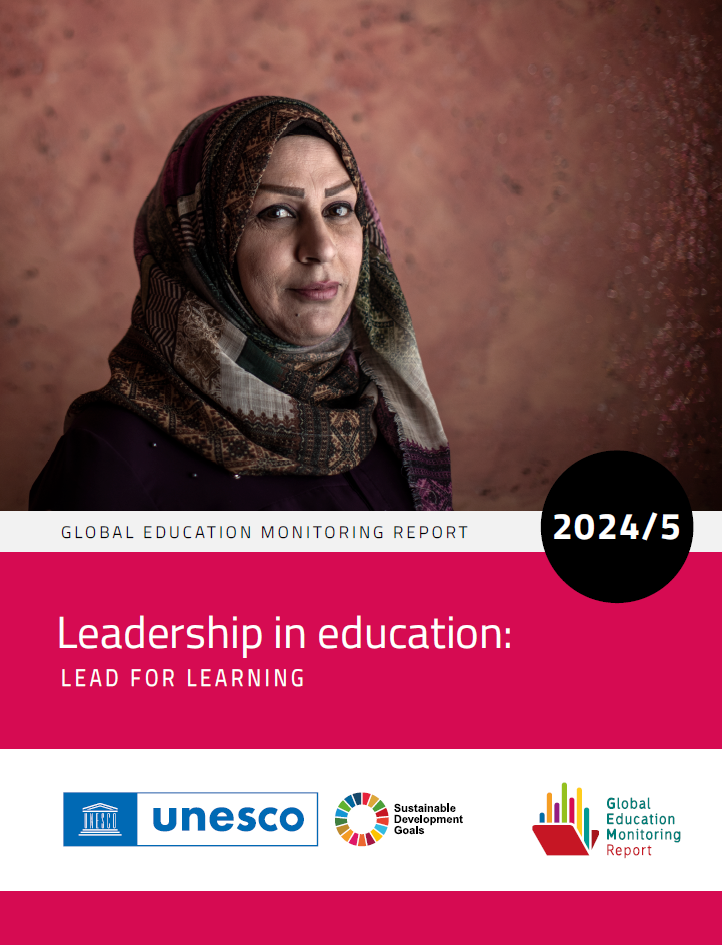UNESCO – Global Education Crisis: 251 million children out of school amid leadership and funding crisis

For every $100 spent per child in high-income countries, less than $1 reaches children in low-income countries , further exacerbating inequalities (EFW 2024). Low-income countries face enormous debt pressures , with six in ten nations at risk of financial stress. In Africa, countries spent almost as much on debt service in 2022 as they did on education (EFW 2024).
The GEM Report 2024 highlights the essential role of leadership in solving the education crisis. Strong, empowered leaders are essential to transforming educational outcomes, yet only half of school principals globally receive training in key areas such as teaching, collaboration and staff development. Leadership explains more than a quarter of the variation in school performance, emphasizing the urgent need to invest in leaders at all levels, from ministries to schools.
Politics sometimes hamper these efforts: more than half of education ministers leave their posts within two years, and 29% of countries continue to make teacher hiring and firing decisions based on political considerations , including Indonesia, Brazil and Russia. Close political relationships can be detrimental to educational outcomes, as short-term considerations prevail over transformative goals in education.
Manos Antoninis, Director of the GEM Report , commented: “ Good schools require good school leaders who can inject new impetus into learning. These leaders, who influence student outcomes second only to teachers, need to be supported with training and resources. We are failing to empower our leaders to take education where it needs to be. In four out of ten countries, university leaders are not even allowed to make academic and organisational decisions by law .”

Screenshot: Click HERE to view video
UNESCO’s new annual Global Education Monitoring Report shows that :
- 251 million children are out of school, a mere 1% reduction since 2015. Worse still, the number of out-of-school children in Africa has increased by 12 million.
- Some 650 million leave school without a secondary school certificate. The gap in completion rates between the poorest and richest students has widened, significantly affecting the most disadvantaged.
- A reduction in aid: The share of official development assistance allocated to education fell from 9.3% to 7.6% between 2019 and 2022.
- A huge financing gap : UNESCO estimates an annual investment gap of almost $100 billion in developing countries (Source: GEM Report).
- Today, children are less likely to be able to read and understand compared to a decade ago, a setback in progress.
- Quality standards for teachers are declining in sub-Saharan Africa, Europe and North America.
Financing is insufficient to accelerate progress, and the cost of debt servicing adds pressure.
- Spending on education per child has remained flat since 2010 , indicating a lack of investment.
- In Africa, almost as much is spent on debt service as on education , limiting the ability to improve educational outcomes.
We call for investment in strong leaders within the education system to find a way out of this crisis.
- Crucial role of leaders: Leadership explains up to 27% of the variation in student outcomes.
- Inefficient recruitment: Less than two-thirds of countries employ competitive recruitment for directors. Gaps in management and diversity persist.
- Training gap: Only half of principal training programmes focus on key leadership dimensions. In high-income countries, half of principals receive no training before taking up their posts.
- Limited autonomy: Autonomy is positively correlated with better student outcomes. Currently, 37% of principals have control over school content and 28% have a say in teacher salaries. Nearly 40% of countries do not recognize the autonomy of higher education institutions by law.
- Overwork: Principals in low- and middle-income countries spend 68% of their time on administrative tasks. One-third of public school principals in the richest countries report not having enough time to focus on teaching and learning.

Spokespersons:
- Manos Antoninis , Director of the Global Education Monitoring Report
- Stefania Giannini , Assistant Director-General for Education at UNESCO (in English and Italian)
If you are interested, please feel free to get in touch and I will be happy to arrange this for you.
About the Global Education Monitoring (GEM) Report
The Global Education Monitoring Report (GEM Report) is developed by an independent team and published by UNESCO. It has the official mandate to monitor progress towards the Sustainable Development Goal on education, SDG 4.
About Education Finance Watch (EFW)
The Education Finance Watch (EFW) is a collaborative effort between the World Bank, GEM Report, and the UNESCO Institute for Statistics (UIS). The EFW provides an analysis of trends, patterns, and issues in education financing globally, using a variety of educational, economic, and financial data sources from the World Bank, UIS, the International Monetary Fund, and the Organization for Economic Cooperation and Development (OECD).
| Global Education Monitoring (GEM) Report, UNESCO Email: el.weill@unesco.org Port/Mob: +33 (0) 6 30 62 18 75 |





